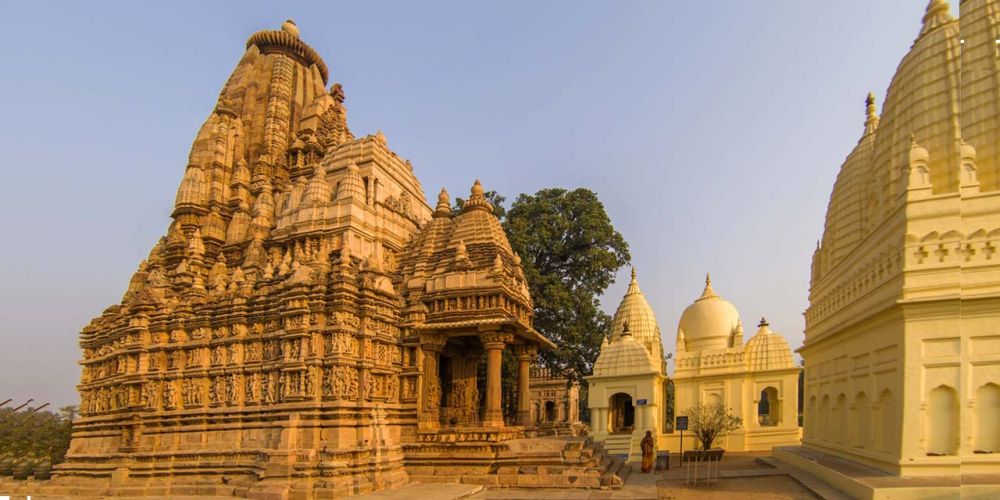

Khajuraho, located in Madhya Pradesh, India, is renowned for its group of Hindu and Jain temples, which are recognized for their intricate sculptures and architectural mastery. These temples were built between the 10th and 11th centuries under the patronage of the Chandela dynasty. The most significant among the Jain temples is the Parsvanatha Temple, dedicated to Lord Parsvanatha, the 23rd Tirthankara of Jainism.
For several centuries, these architectural marvels were forgotten and overgrown by dense forests until their rediscovery by the British engineer T.S. Burt in the 1830s. This discovery marked the beginning of Khajuraho as a significant site for historical tourism in India.
The real turning point for tourism at Parsvanatha Temple and the Khajuraho Group of Monuments was their inscription as a UNESCO World Heritage Site in 1986. This recognition brought international attention, and the site has since become an essential part of India's cultural and historical tourism offering.
As the temples gained global fame, the number of visitors began to rise significantly. The Indian government, along with various tourism bodies, invested in improving infrastructure, connectivity, and visitor facilities. Events like the annual Khajuraho Dance Festival, which showcases classical Indian dances, also contribute to the attraction of tourists.
In recent times, tourism trends in Khajuraho have shifted towards a more holistic experience. There is an increasing emphasis on sustainable tourism, with the focus being on preserving the site's integrity while accommodating tourists. Visitors today are not only interested in the architecture but also in understanding the cultural, religious, and historical contexts of the temples.
The advancement in digital technology has also paved the way for virtual tours and augmented reality experiences at the Parsvanatha Temple. Through these tools, visitors can gain deeper insights into the site's history and iconography without physical presence, which is particularly useful during times when travel is restricted.
The history of tourism at Parsvanatha Temple, Khajuraho, is a testimony to its enduring charm and significance. From its rediscovery to becoming a UNESCO World Heritage Site, and adapting to the latest trends in sustainable and digital tourism, Khajuraho continues to evolve as a premier historical destination, enchanting visitors from across the globe.